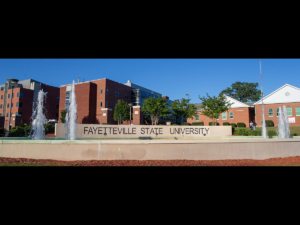Forty years after the gruesome killings of four Black South African activists by apartheid security forces, the search for justice has resurfaced with the opening of a new judicial inquiry, a last-ditch effort by grieving families to unearth the truth in the absence of accountability.
One of the victims, Sicelo Mhlauli, was returned to his wife’s arms not as a husband, but as a body bearing more than 25 stab wounds to the chest, seven to the back, a slashed throat and no right hand.
“When Nombuyiselo Mhlauli was given her husband’s body back for burial, he had more than 25 stab wounds in his chest and seven in his back, with a gash across his throat. His right hand was missing.”
He was one of the Cradock Four, a group of anti-apartheid activists abducted and executed in June 1985. Their deaths galvanized resistance across the country but yielded no justice. Now, with all six security officers named in the killings dead and the justice system still largely inert, a new inquiry seeks to establish the truth that decades of silence buried.
Watch a recent episode of The BreakDown podcast below and subscribe to our channel PanaGenius TV for latest episodes.
The inquiry began this month in Gqeberha, not far from where the men were abducted. During the opening, families shared long-held pain. Nombuyiselo Mhlauli recounted the horrors inflicted on her husband’s body, while Thumani Calata, daughter of the slain teacher Fort Calata, wept as she told the courtroom what she had lost.
“I don’t know how it feels, and I will never know how it feels, to be hugged by my dad,” she said.
Thumani was born just two weeks after the mass funeral for the Cradock Four, which drew thousands and turned into a defining moment in South Africa’s anti-apartheid struggle.
Back then, two separate inquiries, held under apartheid rule, failed to name perpetrators. One claimed the murders were committed by “unknown people,” and another vaguely referenced “unnamed policemen.” No prosecutions ever followed, despite the Truth and Reconciliation Commission (TRC) identifying key suspects in the late 1990s and denying them amnesty.
“The six former police officers directly implicated in the abductions and killings have died, the last one in 2023,” making legal justice impossible. Still, families like the Calatas and Mhlaulis push for official recognition of the facts.
The TRC, created by Nelson Mandela’s post-apartheid government, processed over 7,000 amnesty applications. More than 5,000 were rejected and referred for criminal investigation, but very few led to court cases.
Political analyst Oscar van Heerden of the University of Johannesburg said the emotional testimony offered at the inquiry signals that old wounds remain painfully raw.
READ ALSO: South Africa minister denies easing Black ownership rules to favor Elon Musk’s Starlink
“Where it was felt that truth was not spoken and there wasn’t sufficient evidence to warrant forgiveness, those were cases that were supposed to be formally charged, prosecuted and justice should have prevailed,” he said. “None of that happened.”
After years of inaction, frustration finally reached a tipping point. The families sued the South African government for failing to investigate apartheid-era crimes. A settlement in that case forced President Cyril Ramaphosa to authorize a broader inquiry, led by a retired judge, into why so many perpetrators were never prosecuted. That national probe has yet to begin.
Other long-dormant cases are also being reexamined, including suspicions around the 1967 death of Albert Luthuli, a former African National Congress leader who died after being struck by a train, an incident long believed by many to have been an assassination.
Families of both Black and white victims are uniting to pressure the state. Survivors of the 1993 Highgate Hotel massacre, in which gunmen opened fire on white patrons in a bar, have joined forces with the Cradock Four families, alleging deliberate obstruction of justice by successive post-apartheid governments.
At the Cradock Four hearings, attorney Howard Varney made it clear: this may be the last window for any form of closure. The inquiry is attempting to reconstruct the night of the murders, from the police roadblock where the men were taken to the discovery of their tortured, burned bodies. Families are also pressing for testimony from ex-security officers and a former military commander.
For Lukhanyo Calata, son of Fort Calata, closure won’t come in the form of trials, but through the clarity of truth preserved in the public record.
“Justice now can really only come in the form of truth,” he told The Associated Press. “They may not have been prosecuted, they may not have been convicted, but according to court records, this is the truth around the murders of the Cradock Four.”
READ ALSO: Deadly floods and snow batter South Africa, leaving seven dead and children missing










